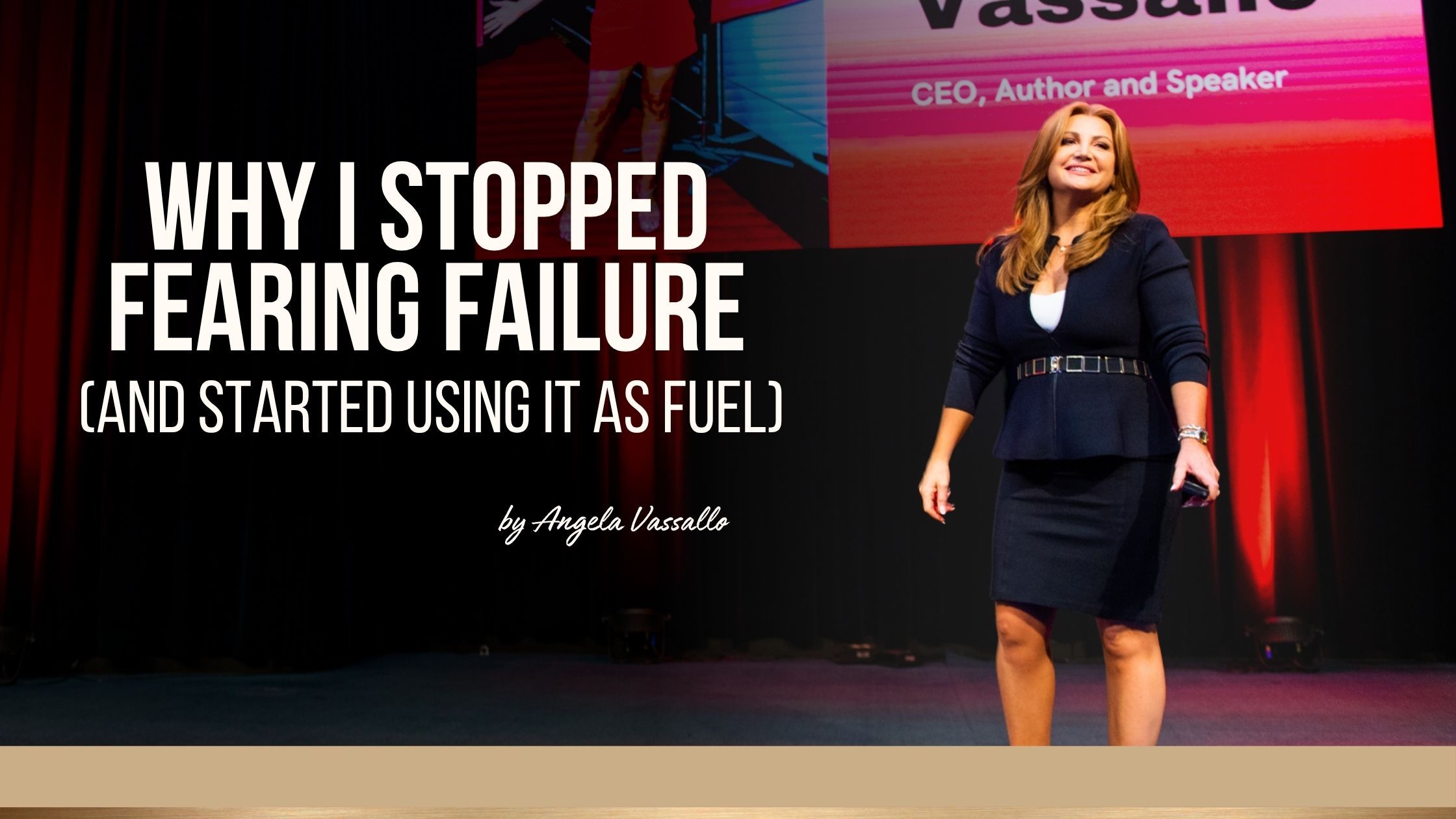Why I Stopped Fearing Failure (and Started Using It as Fuel)

There was a time in my life when failure felt like a verdict.
If something didn’t go to plan, I took it personally.
If I made a mistake, I spiraled into self-doubt.
If I got rejected, I assumed it meant I wasn’t enough.
I used to think success was a straight line hard work in, results out.
But life, as we all learn eventually, doesn’t work that way.
Instead, life teaches us through detours, delays, and disappointments.
And it took me years (and more than a few face-plants) to finally understand:
Failure isn’t the enemy. It’s the curriculum.
What Failure Really Teaches You
We’re conditioned to believe failure means something is wrong with us, with our timing, or with our abilities.
But what if failure is just the universe redirecting us to something better?
What if it’s not about your worth, but about your growth?
I’ve failed in business.
I’ve failed in relationships.
I’ve failed at launches, ideas, dreams I held tightly.
And every time, it stung.
But eventually, that sting turned into strength.
I began asking:
What is this trying to teach me?
How can I use this, not be ashamed of it?
That’s when everything started to shift.
The Real Fear Isn’t Failing It’s Freezing
What I’ve seen over and over especially with ambitious women is that we don’t just fear failure.
We fear:
- Rejection: What if they don’t like me, my message, or what I’m offering?
- Judgment: What if people talk? What if they see me mess up?
- Disappointment: What if I let others down or worse, let myself down?
These fears don’t shout. They whisper.
They chip away at our confidence.
They keep us waiting… perfecting… hesitating.
But here’s what I know now:
Staying stuck doesn’t keep you safe. It just keeps you small.
The goal is not to eliminate fear.
The goal is to move with it.
To walk straight into the thing you’re scared of and do it anyway.
Ask This One Question When Fear Takes Over
Whenever fear pops up (and it still does), I pause and ask:
“If I wasn’t afraid of failing or being judged, what would I do?”
That question is like a compass.
It pulls me back to my truth.
It reminds me that I don’t need to have all the answers. I just need to take the next step.
Because the people we admire, the ones doing brave things in the world, aren’t fearless.
They’re just willing to feel the fear and do it anyway.
From Falling Apart to Rising Again
I’ve had businesses that didn’t work.
I’ve launched programs that flopped.
I’ve written content that no one responded to.
But I’ve also rebuilt from the ashes.
I’ve pivoted when something wasn’t aligned.
I’ve learned how to bounce faster, stronger, clearer.
That’s what resilience is.
Not perfection, but persistence.
Failure no longer derails me.
It informs me.
It fuels my next move.
Confidence Comes From the Courage to Begin
So many of us are waiting.
Waiting to feel ready.
Waiting for more qualifications.
Waiting for someone to tell us we’re good enough.
But confidence doesn’t appear out of nowhere.
It’s built in the doing.
In the messy beginnings.
In the trying-and-failing-and-trying-again moments that nobody posts about.
Courage comes first.
Confidence comes later after you’ve earned your own trust.
The Leadership Edge No One Talks About
As a speaker, mentor, and business owner, I’ve come to believe that resilient leaders are not the ones with the best ideas, they're the ones with the most grit.
They’re the ones who fall and still show up.
Who face the criticism and keep creating.
Who lose things and still build again.
This is the edge that sets people apart in leadership:
The ability to turn failure into fuel.
It’s not about bouncing back once.
It’s about making it a lifestyle.
Final Thoughts: Start Before You’re Ready
If you’re reading this and feeling stuck, I want you to know something:
You’re not broken.
You’re not behind.
You’re just in the middle of becoming.
Don’t wait for the fear to go away.
Don’t wait for certainty.
Just begin.
Take the step.
Make the call.
Send the email.
Launch the thing.
Share your truth.
Bet on yourself.
Because the fall won’t break you.
But never trying? That might.
And remember this:
You’re not starting from scratch. You’re starting from experience.
And that’s your greatest advantage.

